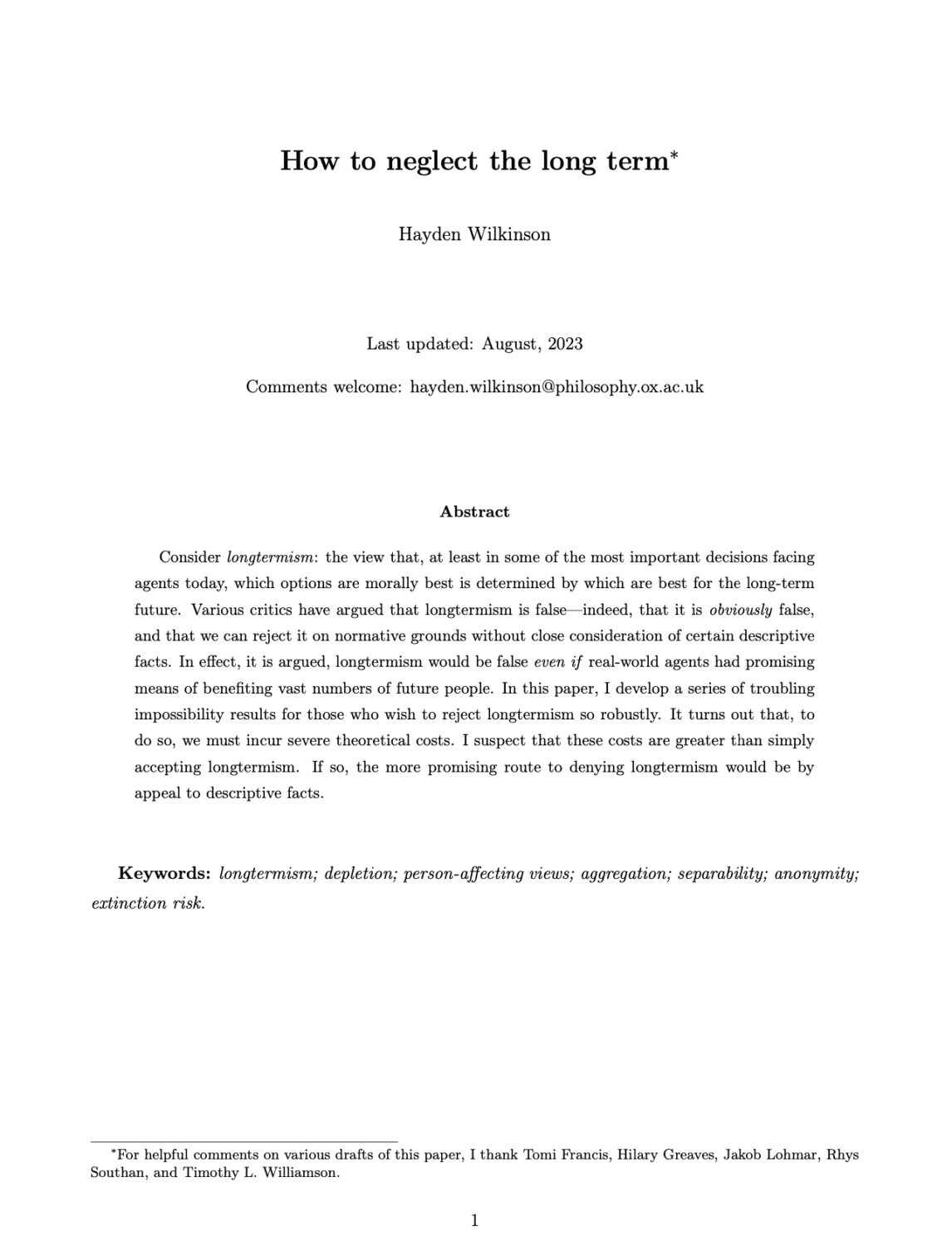How to neglect the long term
Hayden Wilkinson (Global Priorities Institute, University of Oxford)
GPI Working Paper No. 11-2023
Consider longtermism: the view that, at least in some of the most important decisions facing agents today, which options are morally best is determined by which are best for the long-term future. Various critics have argued that longtermism is false—indeed, that it is obviously false, and that we can reject it on normative grounds without close consideration of certain descriptive facts. In effect, it is argued, longtermism would be false even if real-world agents had promising means of benefiting vast numbers of future people. In this paper, I develop a series of troubling impossibility results for those who wish to reject longtermism so robustly. It turns out that, to do so, we must incur severe theoretical costs. I suspect that these costs are greater than simply accepting longtermism. If so, the more promising route to denying longtermism would be by appeal to descriptive facts.
Other working papers
Existential risk and growth – Leopold Aschenbrenner (Columbia University)
Human activity can create or mitigate risks of catastrophes, such as nuclear war, climate change, pandemics, or artificial intelligence run amok. These could even imperil the survival of human civilization. What is the relationship between economic growth and such existential risks? In a model of directed technical change, with moderate parameters, existential risk follows a Kuznets-style inverted U-shape. …
The epistemic challenge to longtermism – Christian Tarsney (Global Priorities Institute, Oxford University)
Longtermists claim that what we ought to do is mainly determined by how our actions might affect the very long-run future. A natural objection to longtermism is that these effects may be nearly impossible to predict— perhaps so close to impossible that, despite the astronomical importance of the far future, the expected value of our present actions is mainly determined by near-term considerations. This paper aims to precisify and evaluate one version of this epistemic objection to longtermism…
It Only Takes One: The Psychology of Unilateral Decisions – Joshua Lewis (New York University) et al.
Sometimes, one decision can guarantee that a risky event will happen. For instance, it only took one team of researchers to synthesize and publish the horsepox genome, thus imposing its publication even though other researchers might have refrained for biosecurity reasons. We examine cases where everybody who can impose a given event has the same goal but different information about whether the event furthers that goal. …

